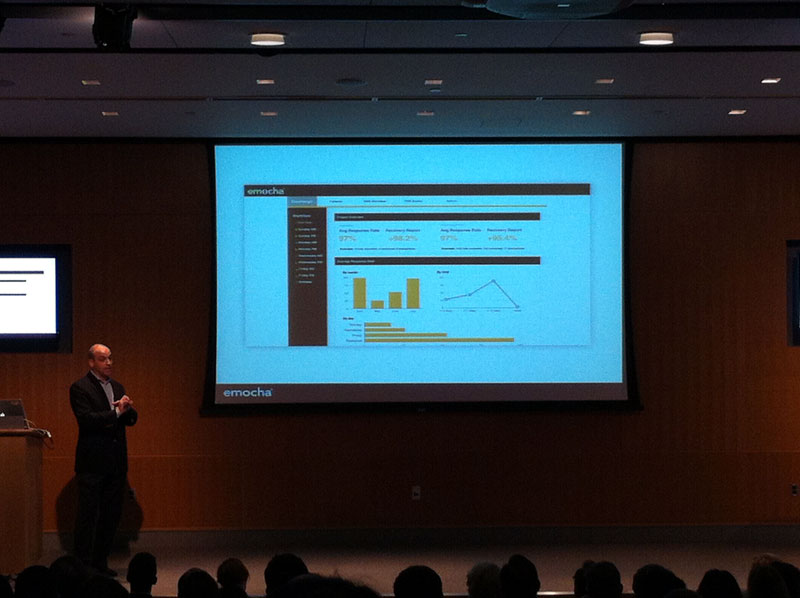The U.S. Centers for Disease Control is funding a study led by researchers at the Johns Hopkins University School of Medicine that will explore the use of financial incentives and technology from Baltimore-based emocha Mobile Health to encourage patients with opioid use disorder to stick to a medication regimen.
The CDC is providing $2.1 million over three years for the study, which will focus on treatment utilizing the medication buprenorphine. The goal is to assess whether the combination of technology and regular payment improves adherence to the medication plan as prescribed and reduces the risk of overdose for patients battling addiction.
The study will enroll patients from Maryland, who will use emocha’s video platform to record themselves taking medication daily over 24 weeks. When the researchers verify that the patients take the medication, they will receive a financial incentive.
“Research over the past 40 years has shown that behavioral economic incentive interventions (also called “contingency management” interventions) are some of the most effective psychosocial treatments for substance use disorders,” said August Holtyn, an assistant professor at JHU School of Medicine’s Center for Learning and Health and principal investigator of the study. The co-investigator is Kenneth Silverman, director of the Center for Learning and Health.
“Incentive interventions provide financial incentives to patients after a therapeutic behavior (e.g., medication adherence) is objectively verified,” Holtyn said. “The integration of financial incentives and emocha’s DOT technology provides an efficient way to remotely verify therapeutic behavior and deliver an evidence-based incentive intervention. This approach could improve access to evidence-based treatment, and improve healthcare delivery and clinical outcomes.”
Holtyn said patients will be given a reloadable credit card. Once the study leaders review the videos and confirm the medication was taken as prescribed, patients receive “a few dollars” that will be added remotely, Holtyn said. The amount of money earned is displayed through emocha, and coaching is also available through the Baltimore startup’s platform.
For emocha, which is developing its JHU-licensed technology to assist with medication adherence, the ability to offer financial incentives provides another tool that can help patients stick to treatment.
“It will give us another way to help patients be successful,” CEO Sebastian Seiguer said.
The study will further help to validate the platform’s use in that area, which has been a key tenet of its work. It allows the company to work with “world class researchers who are going to help us really calibrate our offerings in terms of incentives and incentive delivery,” Seiguer said.
Johns Hopkins FastForward 1812–based emocha began applying its technology to treatment of opioid use disorder last year through a partnership with a network of clinics and a separate study.







